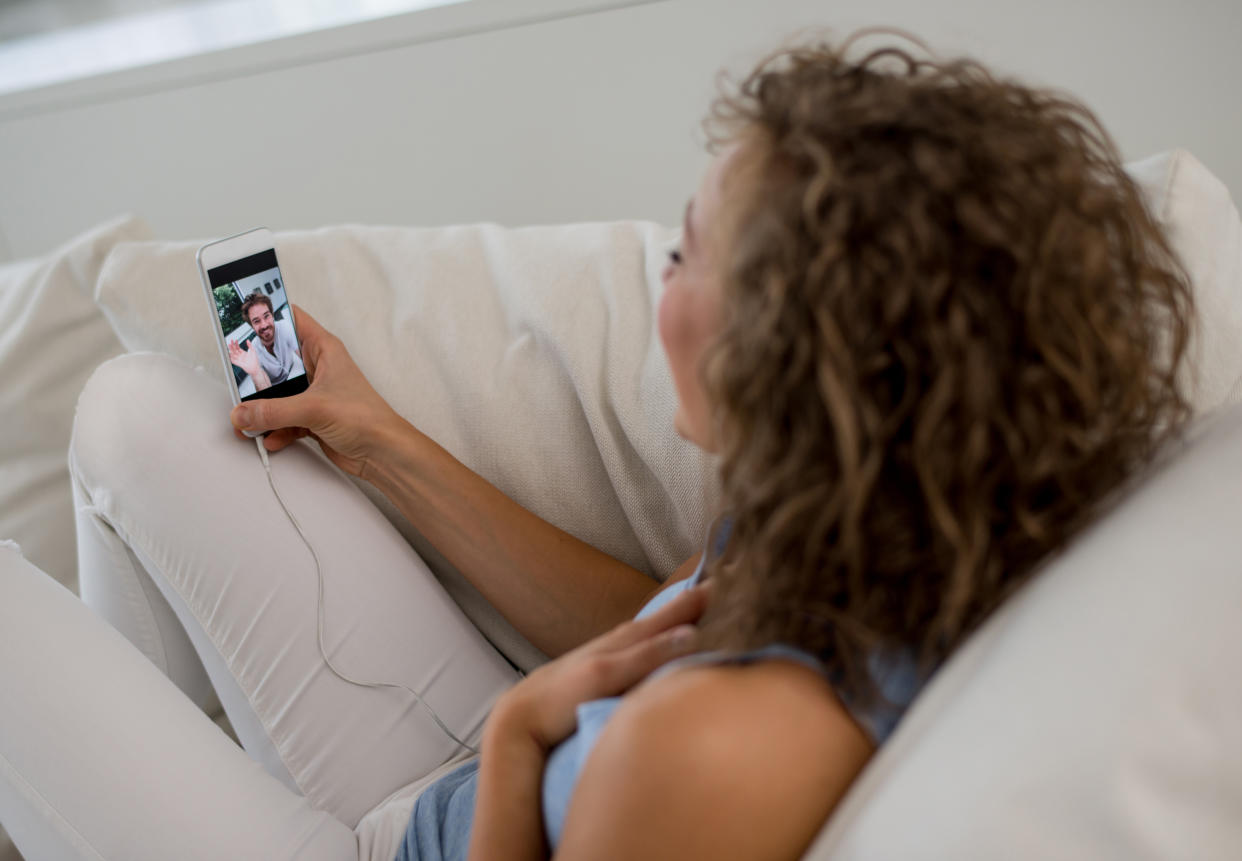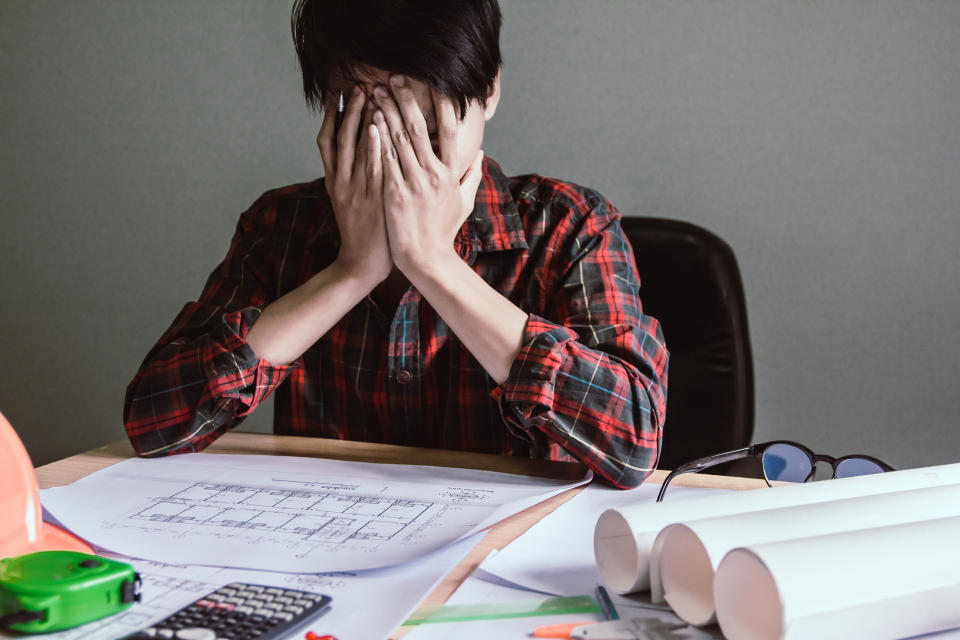Expert shares tips on how to cope with physical distancing during the COVID-19 pandemic

With much of the world now staying home due to the COVID-19 pandemic, it stands to reason that some of us might be discovering that we don’t really like being by ourselves, and that being isolated is not something we enjoy.
While we know that we must stay physically away from people, ‘social distancing’ doesn’t mean we should not be communicating at all. Instead, we should be practising ‘distant socialising’.
Actually, many experts, and even the World Health Organisation (WHO) say that we need to change the term from ‘social distancing’ to ‘physical distancing’.
In fact, we all need to socialise in some way in order to protect our mental health during this time of crisis.
Dr Mark Mitchnick is the CEO of Mind Sciences, a mental health resource run by himself and Dr Jud Brewer, that specialises in helping people deal with issues of anxiety and stress through the use of mindfulness techniques used alone or alongside clinical practice.
Dr Mitchnick agrees that ‘physical distancing’ is a better term for what we need to be practising in the age of COVID-19.
“A better term is ‘physical’ distancing,” says Dr Mitchnick, “because the last thing anyone wants is social isolation, where we are cut off from interactions with others. Today, with so many options for communication, every one of us can make sure that our friends, loved ones and community members don’t feel socially isolated.”
According to Dr Mitchnick, social isolation will affect people differently, and for some of us will result in feelings of loneliness, fear and anxiety.

How do you know if you are lonely?
We have all felt a bit ‘alone’ or lonely in our lives for a variety of reasons; a new job, a new school, moving countries … all these things can make us feel lonely. However the social isolation that we are experiencing now, can lead to a more intense version of loneliness.
So, how do we know if we are suffering from a bout of extreme loneliness? According to Dr Mitchnick, it is actually harder to explain than you might expect.
“That’s actually a tougher question than it might seem. There are technical definitions like ‘the distressing experience that occurs when one’s social relationships are perceived to be less in quantity, and especially in quality, than desired’ but, as a practical matter, I would say that if you feel loneliness on a regular basis and are unable shake the feeling then you are ‘lonely’,” explains Dr Mitchnick.
“Note that being alone and suffering from loneliness are not the same thing. Loneliness is a feeling, a perception of a lack of connection that can happen even if other people are present.
“On the other hand, people can be physically alone but not lonely. We have all experienced both of these at one time or another: Feeling disconnected even when surrounded by friends or, conversely, feeling quite content by ourselves. It is very dependent on the person and the situation,” says Dr Mitchnick.
However, you should also be aware that loneliness can exacerbate other mental health issues, says Dr Mitchnick: “It is safe to say that true loneliness does no one any good.”

Signs to watch out for if you are more than ‘just lonely’
“In a research setting where you might be subject to a battery of tests looking for this or that mental health issue, there might be measurable events indicating a slide towards, for example depression,” explains Dr Mitchnick.
“For most of us, in the real world, this is not terribly relevant. I go back to the notion that if you are experiencing unhelpful feelings, loneliness, anxiety, panic, depression and so forth, and are unable to bring yourself out of them then you should be seeking [professional] help.
“In the case of loneliness, that help can be as simple as reaching out to someone. If you are physically isolated for infection control reasons, then use one of the many video chat options or make a call.
“Even texting has value, but some sort of visual contact is optimal if possible as about 70% of communication is non-verbal,” points out Dr Mitchnick.
#repost @portiaderossi ・・・ Our new normal...cooking and legos purplecarrotxo
A post shared by Ellen DeGeneres (@theellenshow) on
Things to do to make physical distancing easier for your mental health
To keep your mental health in tip-top condition, there are things you can do. Dr Mitchnick has a great list of helpful activities and attitudes to help you through coronavirus isolation:
Develop a routine, keep yourself busy and have purpose
Reach out to others. Making meaningful contact with a few friends and loved ones is more valuable than superficial contact with many. So chose a video chat with a friend over hours of scrolling through social media
Read
Exercise. Staying physically active is always important but especially so during stressful periods. Physically activity has consistently been shown to make us more mentally resilient
Get a pet. Seriously, a connection with a pet is extremely strong and, when studied, consistently shows demonstrable positive impact on people’s mental health
Focus on things you have not had time to previously pursue. Maybe it's learning to play an instrument, write or a home project. We all have things we have put off for lack of time
And here is, in my view, the most important thing to do. Help someone else. We are social animals and built to feel good when we do something good, it's that simple. If you have a neighbor that can’t go out to shop or is without friends, shop for them or reach out to say hello. There are countless ways to do this while still following the physical distancing rules we all must abide by. My wife for instance has been shopping for an older acquaintance of hers and has been sewing face masks for a local shelter. These are not small acts; they are huge and everyone benefits
Dr Mitchnick’s things to do to keep your mental health strong in times of crisis
Stay educated and informed. This does not mean check the news every five minutes but do know what is going on. Maybe set a schedule of checking the news twice a day as an example
Something that we have that no other generation ever has is access to unlimited input via the web. While it’s a source of trouble for sure, in times like these it’s a remarkable blessing when used to enrich ourselves
Use the video chat tools to stay in contact. Look for quality content, things that leave you smarter and better adjusted after seeing them. Many professionals are offering their services free at this time. These range from cooking classes, to exercise to mental health
Watch the founder of my company, Dr. Jud Brewer’s short daily YouTube pieces on coronavirus anxiety and ways to deal with it
Take advantage of all the resources we have. Times are not ideal for sure, but they do present us with some unique opportunities to grow and behave in a way that, when we look back, we can be proud of.
SINGAPORE
For information about the Covid19 outbreak in Singapore go to https://www.gov.sg/features/covid-19.
If you are struggling with thoughts or feelings about suicide, contact SOS on 1800 221 4444 (24hrs). If you have concerns about mental health issues, contact Emergency Helpline (IMH) on 6389 2222 (24hrs). For more information and help dealing with mental health issues, go to www.healthhub.sg/findhelp_servicesformentalhealthsupport.
MALAYSIA
For information about the Covid19 outbreak in Malaysia go to http://www.moh.gov.my/index.php/pages/view/2019-ncov-wuhan.
If you are struggling with thoughts or feelings about suicide, contact Lifeline on (+603) 4265 7995 (24hrs). If you have concerns about mental health issues, contact the Malaysian Mental Health Association on (+603) 7782 5499. For more information and help dealing with mental health issues, contact the Befrienders on (+603) 79568144 or (+603) 7956 8145; or go to www.befrienders.org.my.
PHILIPPINES
For information about the Covid19 outbreak in the Philippines go to https://www.doh.gov.ph/2019-nCoV.
If you are struggling with thoughts or feelings about suicide, contact Lifeline on (02) 8969191 or 0917 854 9191. If you have concerns about mental health issues, contact the National Center for Mental Health (NCMH) Crisis Hotline on 0917 899 8727 (USAP) and 989 8727 (USAP). For more information and help dealing with mental health issues, go to the National Center for Mental Health at ncmh.gov.ph.


